Humanitarian and Charity Work Can Be All Consuming & All Rewarding. Is Balance Possible?
Community
|
Nov 19, 2021
|
6 MIN READ
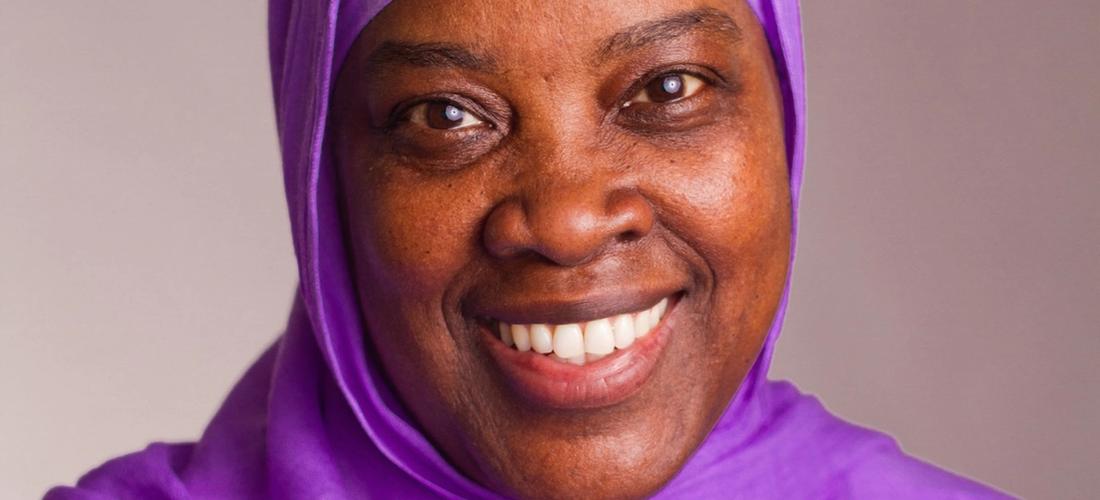
Asma Hanif of Muslimat Al-Nisaa
Editorial note: All this month we are focusing on the stories of Muslim women working in charity, whether as the head of some charitable organization, doing volunteer work or anything in between. We want to explore what drives these women to give of themselves to others, how they balance that in their lives and what advice they have to encourage others to take up work to help those in need.
When it comes to creating cohesion and unity in our Muslim ummah, community projects that focus on giving back is one of the best way to bring us together. Here in the U.S., there are numerous Muslim-led organizations serving the needs of their fellow adherents. Although huge organizations like ICNA and ISNA exist with a myriad of programs niche organizations like the Muslim Anti-Racism Collaborative (addressing racism), MUHSEN (servicing disabled Muslims) and the Hurma Project (educating about spiritual abuse) are also vital to address the specific needs of Muslim communities.
So many of these organizations have dynamic Muslim women at the helm, women who sensed an informed need for each organization’s unique services. They show the continuing example of Muslim women expending time and energy, in addition to familial and other obligations, to use their respective expertise and give back to the ummah.
Inarguably, Muslim women carry communities on their backs. Asma Hanif is a prime and beautiful example, having opened one of the oldest homeless shelters servicing Muslim women. The founder of the Muslimat Al-Nisaa, Asma Hanif launched the non-profit in 1987 when she opened the Healthy Solutions Holistic Health Center clinic in Maryland for Muslim women. In 2007, she opened the first Muslimat Al-Nisaa HOME Center in Baltimore, Maryland to battle homelessness in Muslim communities.
I had a chance to talk with Asma about providing community support over the long term, avoiding burnout and inspiring the next generation of Muslims to give back.
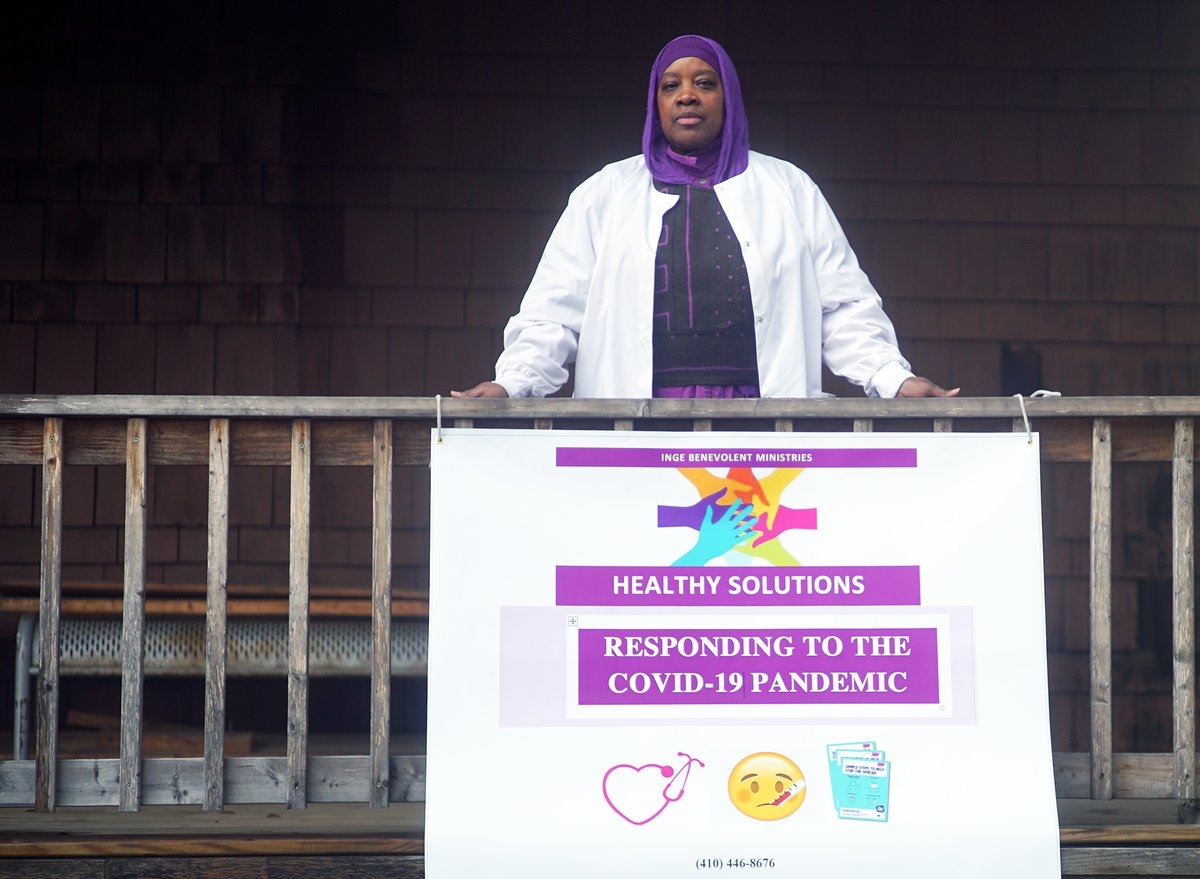
Muslimat Al-Nisaa's Asma Hanif; image source: Twitter.
A Safe Place For Muslim Women
Asma shared with me her journey to Islam while at Howard University and nursing at the institution’s teaching hospital, where she attended to Muslim women.
“I got to know a lot of the Muslim [pregnant] women. I would end up being their floor nurse [during delivery] [Some] of the things Muslim women wanted was for their husbands to come into the delivery rooms with them [when giving birth] and to not have their hijabs removed. They didn’t want any males examining them or silver nitrate placed in their newborn children’s eyes. The doctors would [agree], but [the women] didn’t get any [of their needs met].
I learned that a doctor could not write an order against hospital policy. All of the things [the women] asked for were against hospital policy. I realized the only way you control your situation and environment – you must have your own organization. So, I went back to school to become a nurse-midwife to establish my own [clinic].”
Asma further explains that after assisting a woman in her clinic, who revealed that she was a victim of domestic violence, she decided to open the Muslimat Al-Nisaa HOME.
“I realized that the only way I can help my Muslim sisters [who are] victims of domestic violence was to open a shelter,” she says.“I would have sent them to the shelters run by Christians, but the Christians wanted them to leave the religion. So, basically, they had to sell their deen for a safe place to stay. They had no recourse. So, I decided to open a shelter for Muslim women.”
With a women’s clinic and then the homeless shelter, Asma has worked to provide Muslim women with a safe space where they can maintain their dignity, for more than four decades. She says that while the work soon became exhausting, she continues to do it while struggling to find balance.
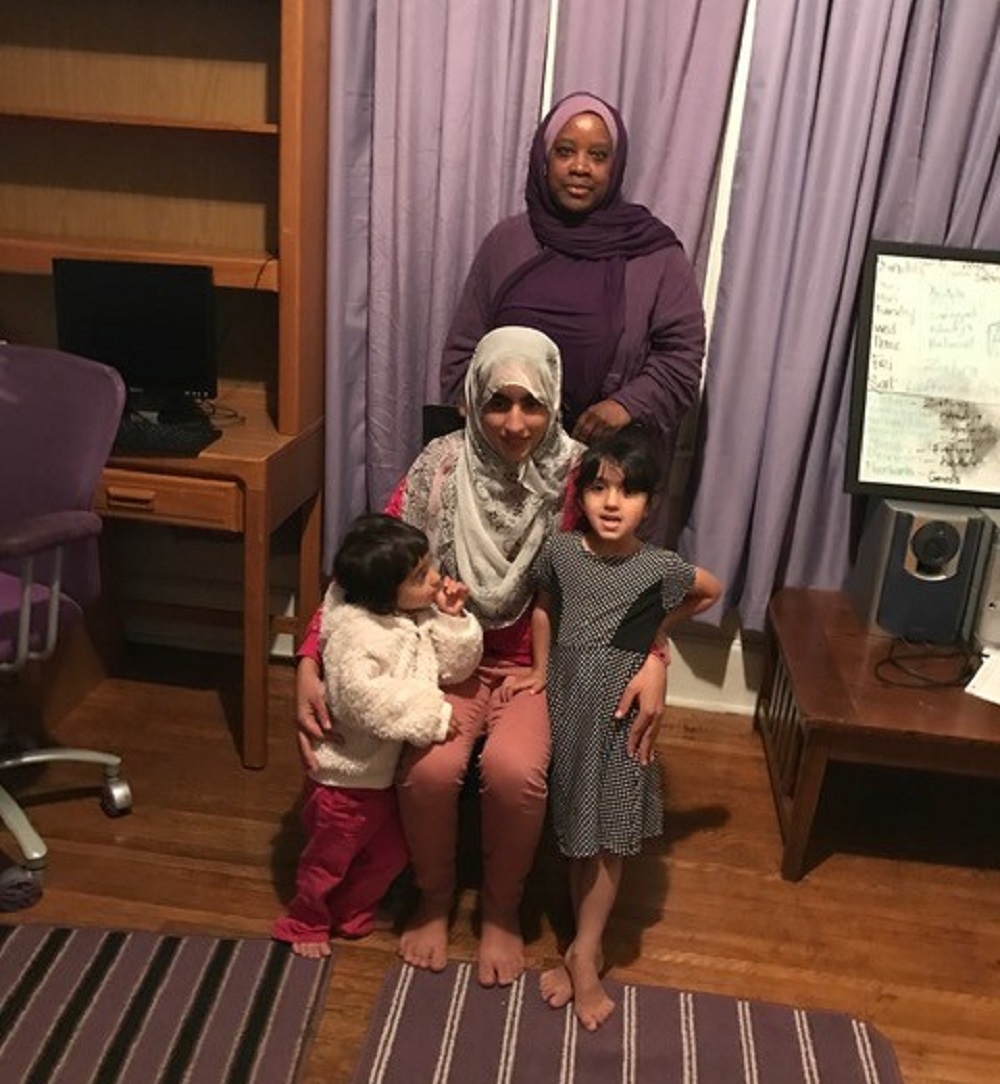
Asma with one of the families at the Muslimat Al-Nisaa homeless shelter.
Is Balance Even Possible?
Balance is being discussed more and more when it comes to Muslim women and community-building. Ideally, society encourages women to avoid burnout when engaging in humanitarian work. I prepared to interview Asma, expecting and hoping to get some pearls of wisdom from her on how to do it all – serve family and community while addressing personal needs.
However, Asma affirmed the reality of the sacrifices that most women make to their health and wellbeing to accomplish their goals to uplift communities.
“It was something I wanted to do [for Allah’s (S) pleasure],” says Hanif. “I answer my phone 365 [days a year], 24/7 because I never know who it’s going to be.”
Asma often struggles for support for her tireless effort and does wish that she would receive some appreciation for how hard she must work to keep operations running. “[Those who need help] don’t care what my problems are; I am their solution,” she says, “And that’s what overwhelms me. I hear their sadness and sorrows, and there is nothing more difficult.”
Asma says she’s often isolated in her work. “Something I'm never asked [about] is how lonely I am without someone to hold and remind me that I am not just a "servant of Allah (S), but also a woman in need of being loved.”
Admittedly, while there is great reward in this work, it’s a tough life to live. Women like Asma, who give so much of themselves and feel such a strong desire to support those who desperately need help, struggle to find any semblance of balance in their lives at times. How do you manage unending compassion that compels you to keep giving back? How do you fill your own cup when you see the needs of others around you all the time?
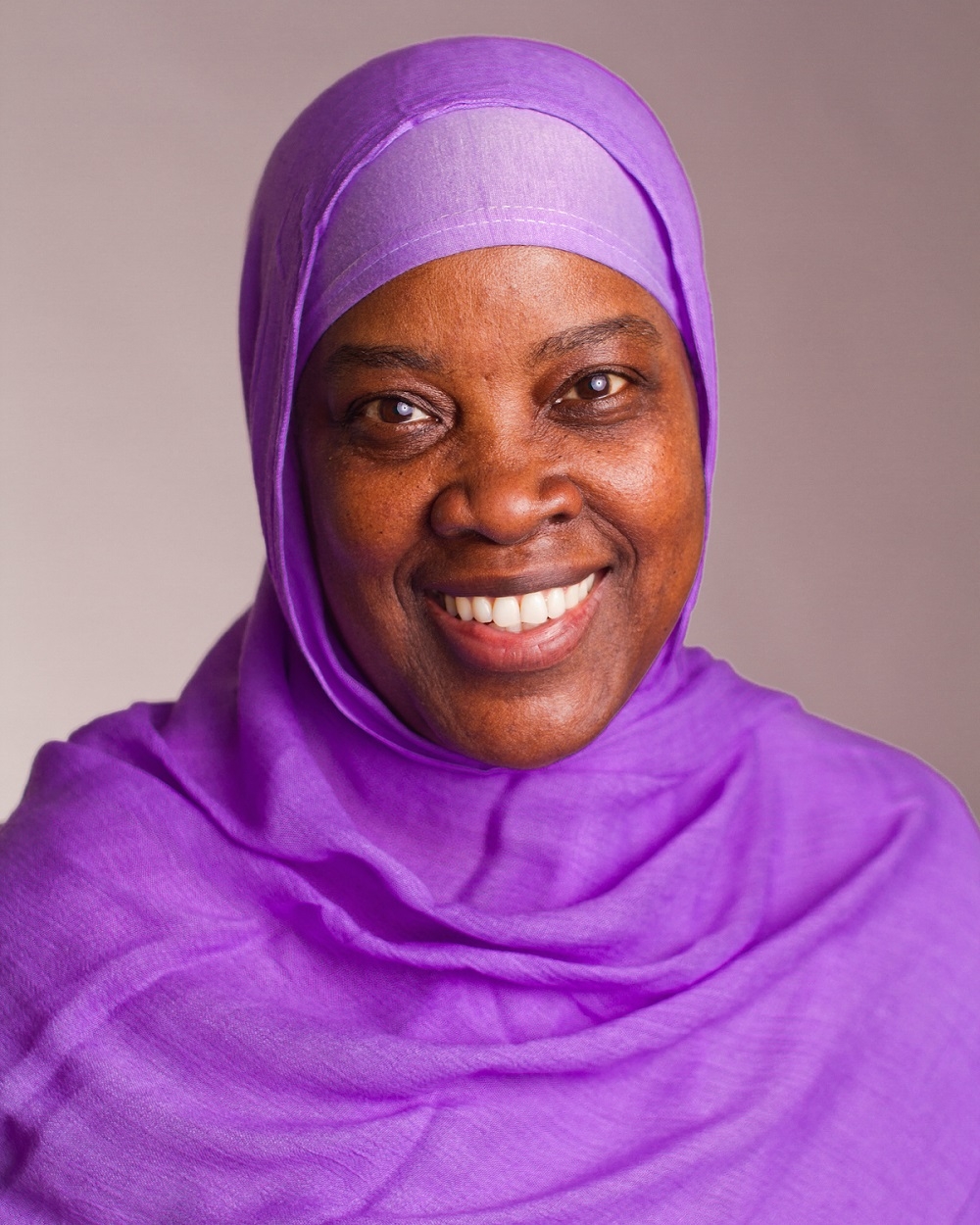
Asma Hanif
When I asked Asma to name one thing she does to take care of herself, she admitted that she didn’t do anything. “I cry a lot now because I realized that in caring for others, I’ve neglected not just myself but many members of my family. That is my greatest sadness.”
Ideally, we all want to give back. Our faith teaches us to help others, and giving of ourselves can be rewarding and an integral part of personal development. So, it is no wonder that if we have the slightest capacity to do so, we make sacrifices for the sake of others, knowing that the ultimate goal is with Allah (S). However, sometimes the ability is not there, or we lose it.
Maybe that is not a bad thing, since constant sacrifice may have a negative impact on one’s personal, familial and communal lives. We are humans, and constant giving, without thinking of ourselves, is a rarity among us.
Asma tells me that she does the work not expecting any gain in this life. “On the Day of Judgement, I don’t want my Lord to say to me, ‘Asma, one of my servants came to you for help, and you turned her away.’ That’s the reason why I do it.”
While finding balance and self-care remain important to refilling one’s cup to keep working, Asma’s perspective is equally significant to assessing the unyielding demands of humanitarian work and providing community support.
Working With the Next Generation
Any organization that wants to maintain longevity must look to the younger generation to take the reins and bring them into the future. Asma describes how she gets young people looking to give back a means of involvement in the continuation of the Muslimat Al-Nisaa HOME Center.
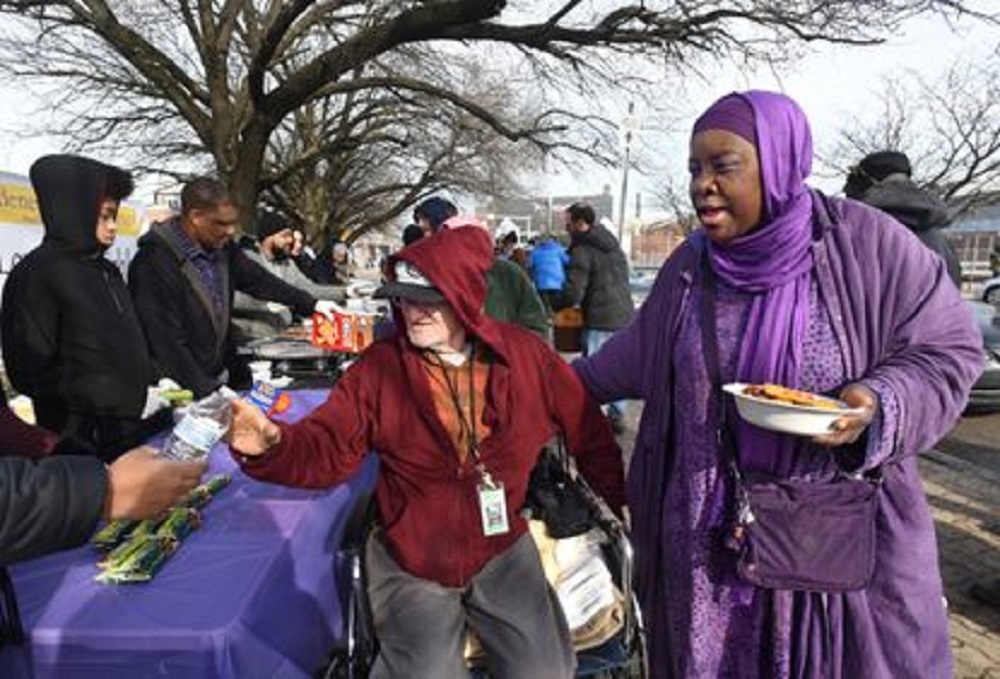
Asma working on COVID response in Baltimore; image source: Baltimore's Sun
“Whenever the youth come to me, wanting to help, I usually give them a task. Maybe they can help me with social media, a gofundme or something that helps with [homeless women] having a place to stay.
“One youth group did a bake sale. I told them to think of something they could do that would render financial help. So they did a bake sale. Another group did a car wash,” she says.
“Another group offered services (i.e., cooking, cleaning, yard work, etc.) to their family members. I don’t tell them, no I don’t want your help. I let them come up with ideas that allow them to do something, as opposed to just trying to collect money.”
Our ummah continues to need people like Asma to create programs benefit to Muslim communities. But we must always appreciate that long-term communal support work comes through great sacrifices to one’s personal and family lives. Helping others is some of the best work we can do in this life, but we all should look to support those who support our communities.
Want to help Sister Asma in her work? Support Muslimat Al Nisaa Shelter/Domestic Violence Ministries Programs in a variety of ways. This is their public donation page. You can also donate through their paypal link. Or, if you want to donate to their shelter house, click here.
Are you involved in volunteer work? How do you balance that with your other commitments? Share your thoughts in the comments below.
Subscribe to be the first to know about new product releases, styling ideas and more.
What products are you interested in?

